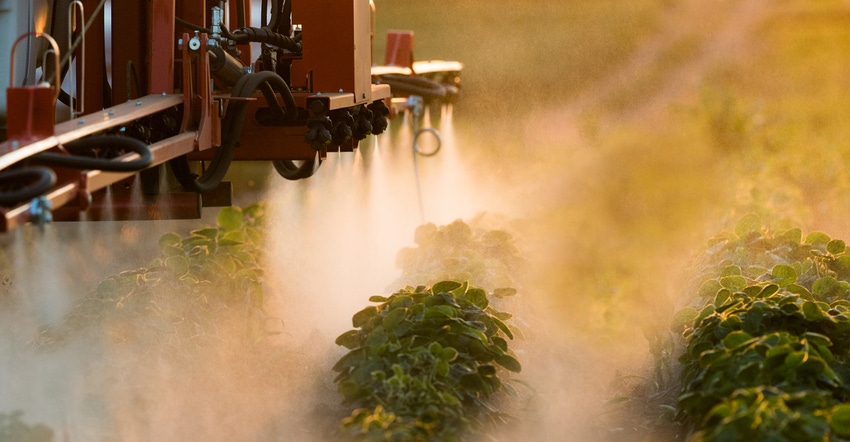June 2, 2021

Three years of research in the University of Missouri Extension Strip Trial Program shows that applying fungicides to soybeans at the R3 growth stage reduces foliar disease and increases yield.
Kaitlyn Bissonnette, University of Missouri Extension plant pathologist, says the results come from 33 tests across the state from 2018 to 2020. Trials show that fungicide application increased yield by 1.5 bushels per acre, with a 90% probability that the mean response across all locations was 1.2 to 2.2 bushels per acre.
Strip trial set up
The trial looked at fungicide-treated and untreated soybeans. Farmers could choose which fungicide to apply at the R3 growth stage. Farmers control all other management decisions, says MU Extension nutrient management specialist John Lory, who leads the strip trial program with Bissonnette.
Soybeans in strips treated with fungicide showed less septoria and frogeye leaf spot, Bissonnette says. Find the complete results at striptrial.missouri.edu.
The Missouri Soybean Merchandising Council and MU Extension supported this on-farm research with cooperation from Missouri soybean farmers and MU Extension faculty. Other partners in the strip trial program include the Missouri Fertilizer Board and the Missouri Corn Merchandising Council.
Get in on research
In addition to continuing R3 fungicide trials, 2021 strip trials focus on cover crop management in corn-soybean rotations, fertilizer management in corn, soybeans, wheat and forages, and a soybean seed treatment.
The program uses on-farm research to help farmers improve profits and maintain the environment, Lory says. Local Extension faculty work with farmers to lay out trials that work with the farmers’ equipment and provide guidance throughout the trial. Farmers replicate trials at least four times on eight to 12 strips.
If interested, contact your local MU Extension agronomist or agricultural engineer, or email [email protected].
Source: University of Missouri Extension, which is solely responsible for the information provided and is wholly owned by the source. Informa Business Media and all its subsidiaries are not responsible for any of the content contained in this information asset.
You May Also Like




